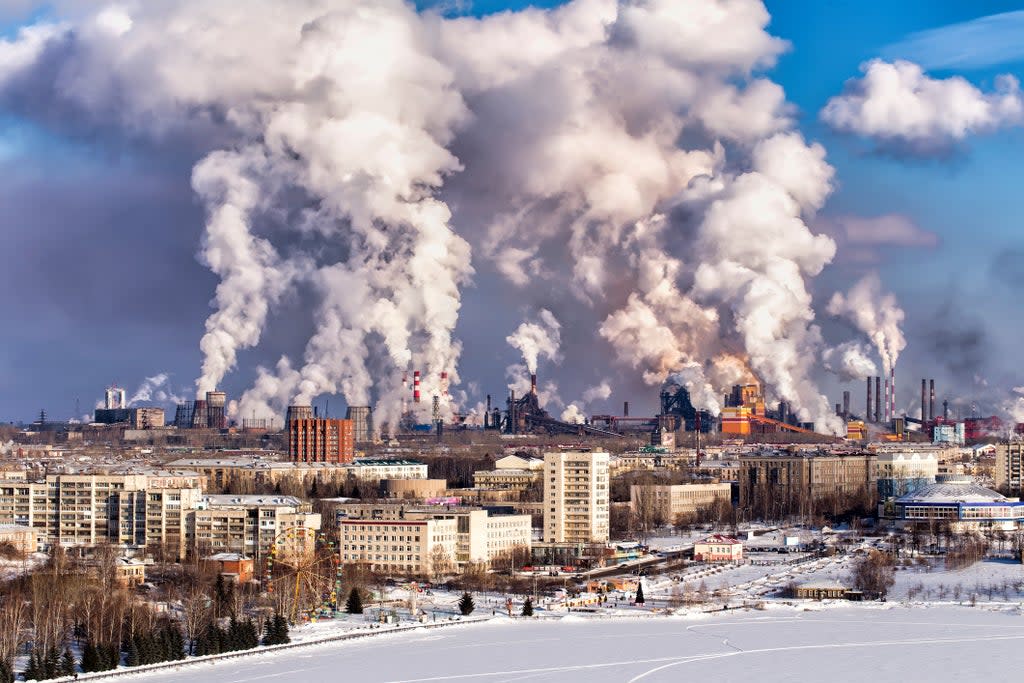World fossil fuel production must be cut by more than half, UN warns governments ahead of Cop26 climate summit

The level of support for continuing fossil fuel expansion from governments around the world remains “dangerously out of sync” with climate targets, and production of coal, oil and gas needs to be cut by more than half, the UN Environment programme (UNEP) has warned ahead of the Cop26 climate summit.
UNEP’s 2021 Production Gap Report found that despite climate ambitions and net-zero commitments increasing around the world, governments are also still planning to produce “more than double the amount of fossil fuels in 2030 than what would be consistent with limiting global warming to 1.5C”.
Just two weeks ahead of the critical climate summit in Glasgow, the report warns that over the next two decades, governments are collectively projecting an increase in global oil and gas production, and only a modest decrease in coal production.
In total, the current trajectory will put the world on course to see global fossil fuel production increasing until at least 2040, creating an ever-widening ‘production gap’ between the level of fossil fuels which can still be excavated and burnt, and the considerably higher level the world is seeing.
Inger Andersen, the executive director of UNEP, said: “The devastating impacts of climate change are here for all to see. There is still time to limit long-term warming to 1.5C, but this window of opportunity is rapidly closing.
“At Cop26 and beyond, the world’s governments must step up, taking rapid and immediate steps to close the fossil fuel production gap and ensure a just and equitable transition. This is what climate ambition looks like.”
The report profiles 15 countries and reveals that most of their governments continue to provide significant policy support for fossil fuel production.
These are: Australia, Brazil, Canada, China, Germany, India, Indonesia, Mexico, Norway, Russia, Saudi Arabia, South Africa, the United Arab Emirates, the United Kingdom, and the United States.
For the UK, the report notes: “In March 2021, the UK government announced a North Sea Transition Deal with its offshore oil and gas industry that will not stop national fossil fuel exploration or production.”
It adds: “The North Sea Transition Deal will invest in skills and job training oriented around CCS [carbon capture and storage] and hydrogen, complementing continued oil and gas production and with no plans for a wind-down in production.”
In the US, the report states that the government has long incentivised expansion of US oil and gas, and “provides over a dozen subsidies to coal, oil, and gas production”, and warns that state administrations often offer further subsidies.
It added that the US “leases public lands and waters for fossil fuel extraction, often at below-market rates”, and also said the country indirectly supports fossil fuels through activities such as road-building programmes.
The report’s authors said that in total, world governments plan to produce around 110 per cent more fossil fuels in 2030 than would be consistent with limiting warming to 1.5C, and almost half (45 per cent) more than consistent with 2C.
Governments’ existing production plans and projections currently lead to about 240 per cent more coal, 57 per cent more oil, and 71 per cent more gas in 2030 than would be consistent with limiting global warming to 1.5C.
“The research is clear: global coal, oil, and gas production must start declining immediately and steeply to be consistent with limiting long-term warming to 1.5C,” said Ploy Achakulwisut, a lead author on the report and a scientist at the Stockholm Environment Institute.
“However, governments continue to plan for and support levels of fossil fuel production that are vastly in excess of what we can safely burn."
Read More
Sierra Nevada lakes change more in past 100 years than three millennia
How the climate crisis played a role in fueling Hurricane Ida
Against the odds: The fight to save sea turtles in Ras Baridi

